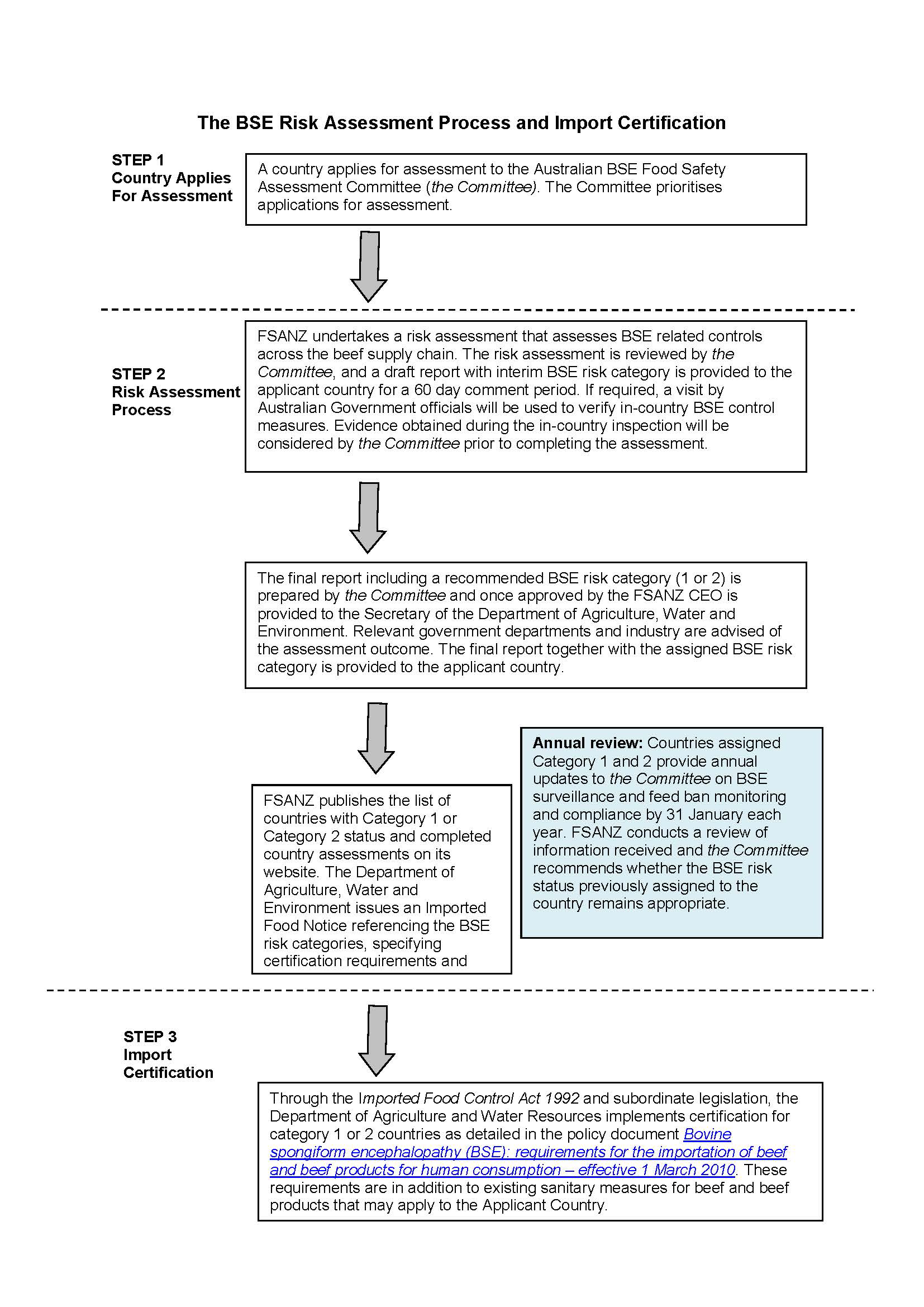Published

BSE-Risk-Assessment-Process-and-Certification-25-March-2020.png
Text version
STEP 1 Country Applies for Assessment
- A country applies for assessment to the Australian BSE Food Safety Assessment Committee (the Committee). The Committee prioritises applications for assessment.
STEP 2 Risk Assessment Process
- FSANZ undertakes a risk assessment that assesses BSE-related controls across the beef supply chain. The risk assessment is reviewed by the Committee, and a draft report with interim BSE risk category is provided to the applicant country for a 60 day comment period. If required, a visit by Australian Government officials will be used to verify in-country BSE control measures. Evidence obtained during the in-country inspection will be considered by the Committee prior to completing the assessment.
- The final report including a recommended BSE risk category (1 or 2) is prepared by the Committee and once approved by the FSANZ CEO is provided to the Secretary of the Department of Agriculture and Water Resources. Relevant government departments and industry are advised of the assessment outcome. The final report together with the assigned BSE risk category is provided to the applicant country.
- FSANZ publishes the list of countries with Category 1 or Category 2 status and completed country assessments on its website. The Department of Agriculture and Water Resources issues an Imported Food Notice referencing the BSE risk categories, specifying certification requirements and implementation date.
Annual review: Countries assigned Category 1 and 2 provide annual updates to the Committee on BSE surveillance and feed ban monitoring and compliance by 31 January each year. FSANZ conducts a review of information received and the Committee recommends whether the BSE risk status previously assigned to the country remains appropriate.
STEP 3 Import Certification
- Through the Imported Food Control Act 1992 and subordinate legislation, the Department of Agriculture and Water Resources implements certification for category 1 or 2 countries as detailed in the policy document Bovine spongiform encephalopathy (BSE): requirements for the importation of beef and beef products for human consumption - effective 1 March 2010. These requirements are in addition to existing sanitary measures for beef and beef products that may apply to the Applicant Country.
